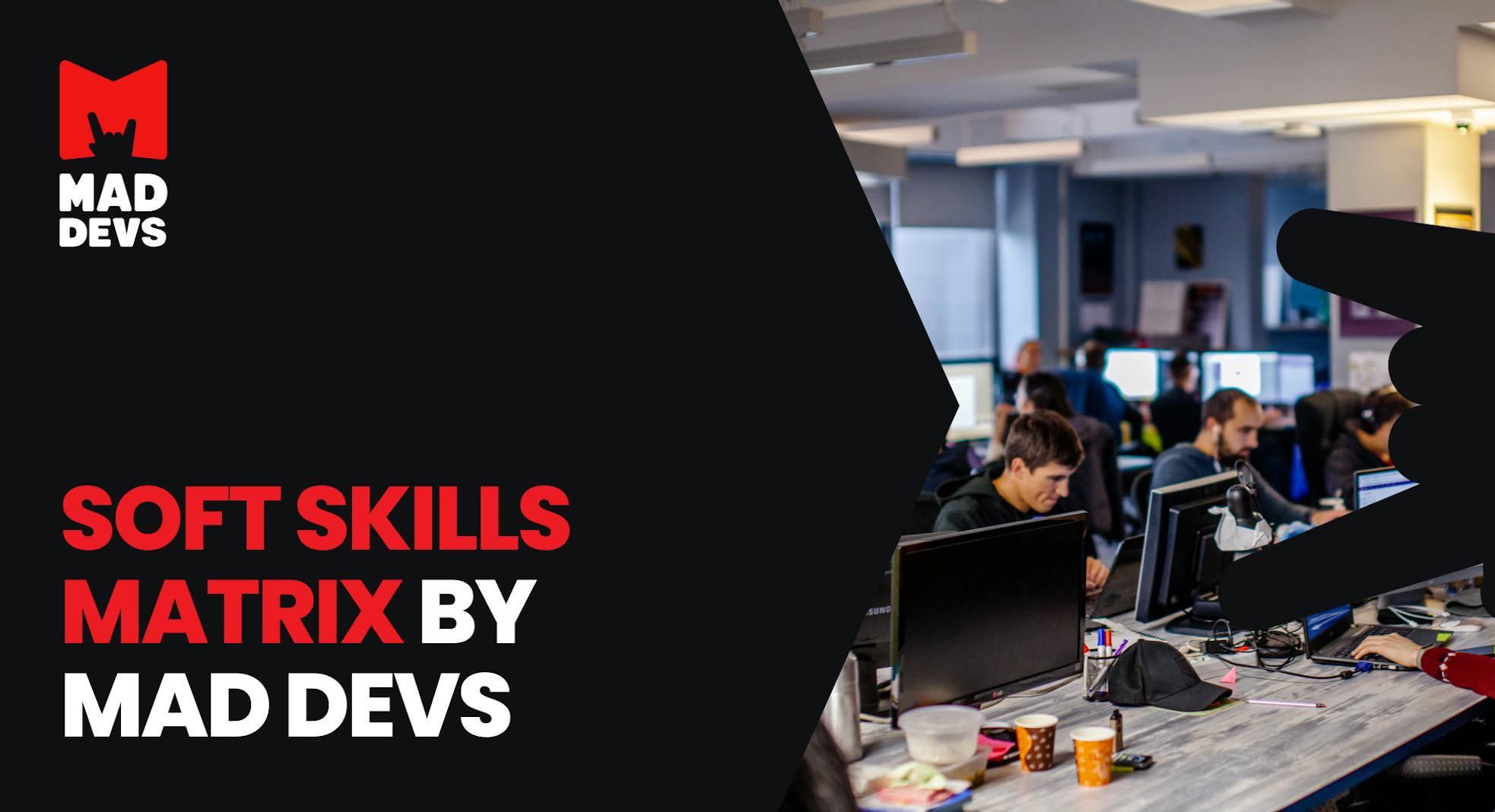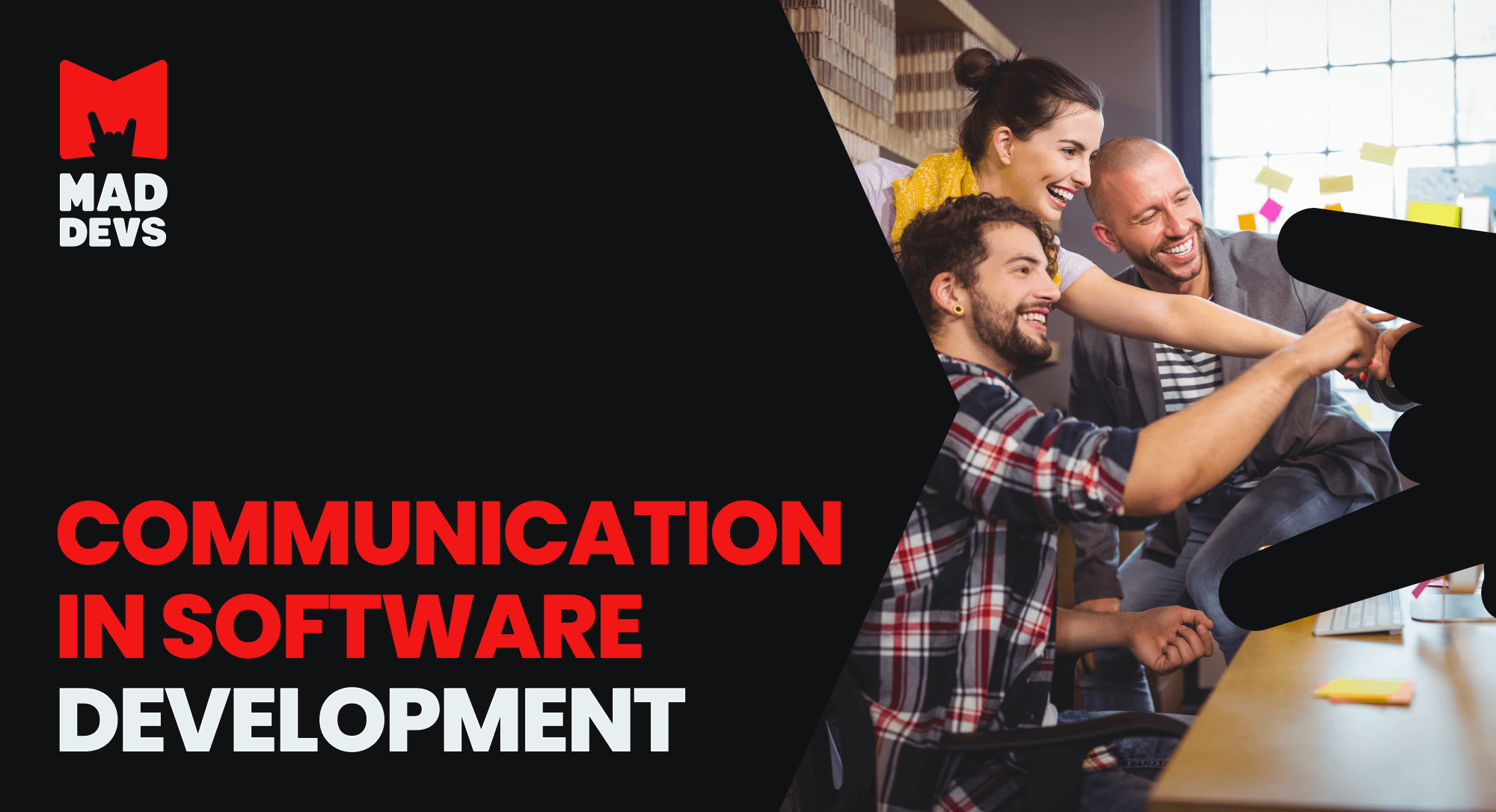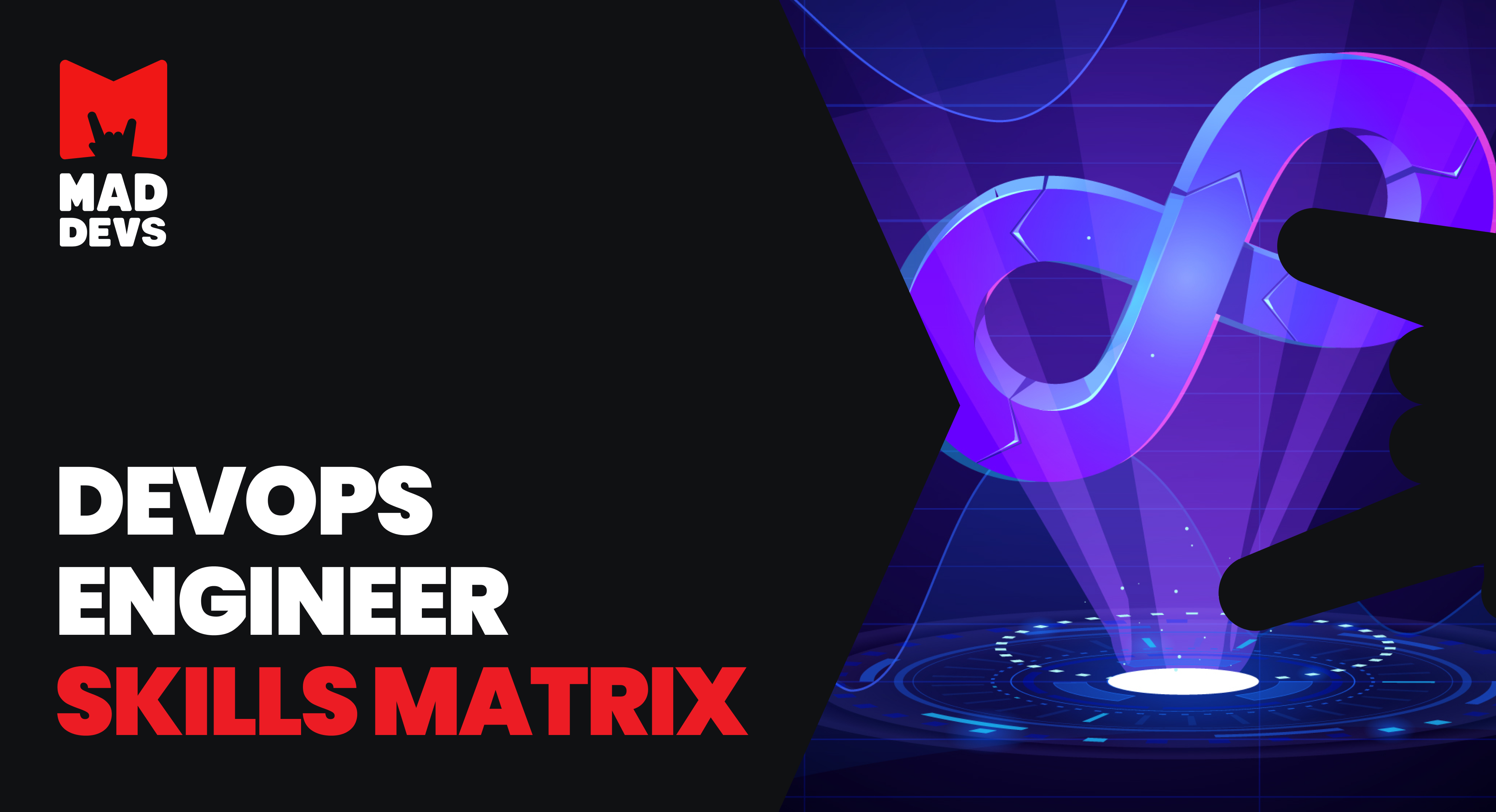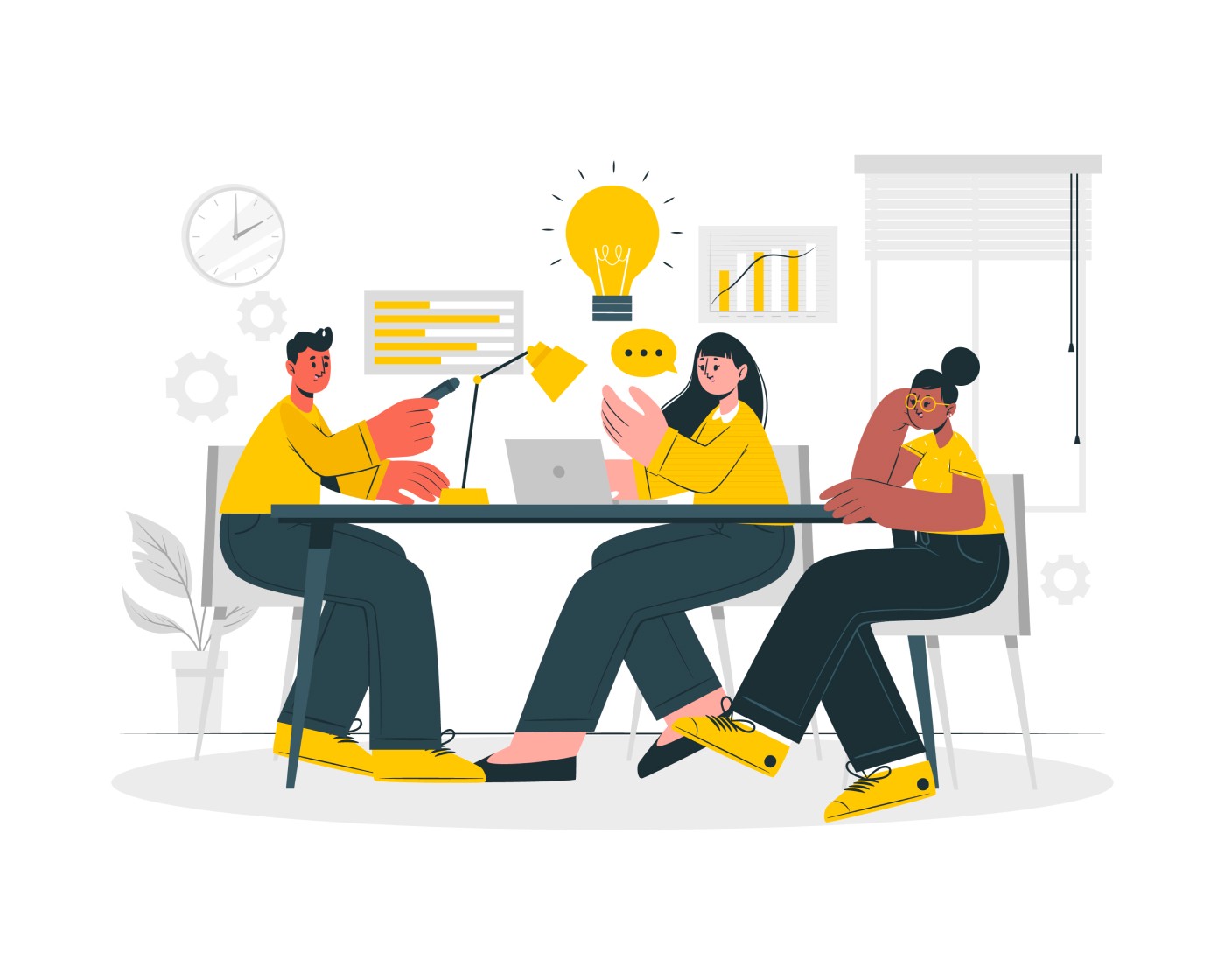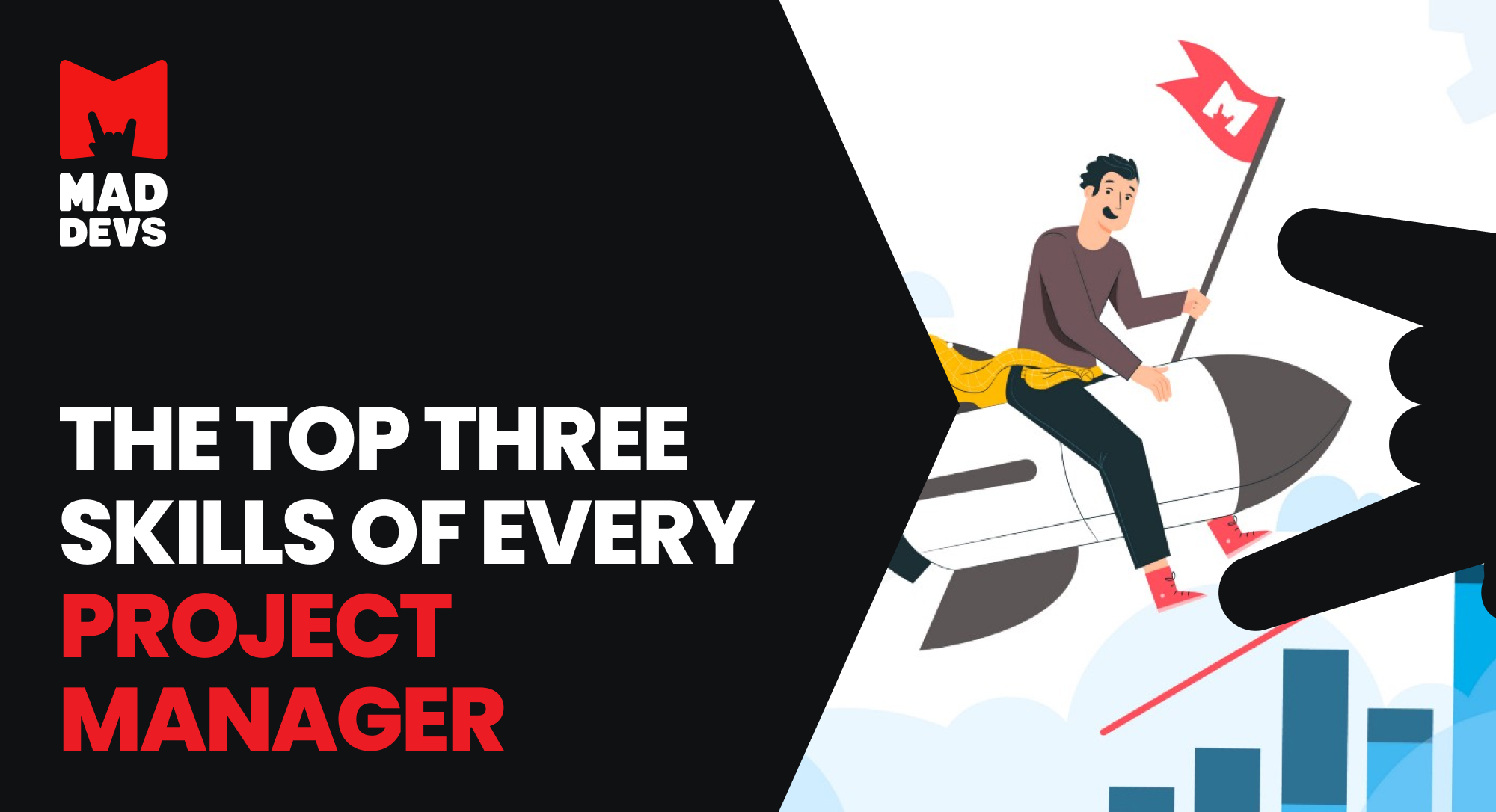Analyze with AI
Get AI-powered insights from this Mad Devs article:
It goes without saying that when you work in the IT field, you must establish yourself as an expert. In the era of ever-increasing globalization in the IT sphere, achieving success is not blessing. Your success won't scale if you lack the required soft skills. These types of skills have become more critical to modern employers. At the dawn of the IT industry, it was enough for you to be a first-class expert and create an excellent product. Over time, the sphere itself and professions have changed significantly. Now there are more requirements for specialists. Also to fulfilling technical tasks, a good developer must also manage a team and communicate with clients.
Promoting yourself in the market or company is hard when you lack soft skills. By developing them, you are bridging the gap between what you have done and what you want to achieve. You become more competitive by making people aware of your work and finding common ground. An employer would likely choose a candidate with good soft skills if several candidates have the same level of hard skills. A person who can take responsibility is likely to take the initiative, lead the process, communicate with the team, and listen to others.
You may wonder: "So, what should I develop in the end?". This article presents Mad Devs' soft skill matrix, which aims to increase employees' effectiveness.
Harvard University and Stanford Research Institute researchers concluded recently that hard skills only contribute 15% to an employee's success. In comparison, soft skills determine the remaining 85%. Our team at Mad Devs came to a similar conclusion over time. And now, we attempt to pay attention to hard and soft skills at this stage.
Within our company, we conduct surveys to help employees develop their soft skills. Moreover, we have internal consultants and mentors who can give pieces of advice or share experience. In this article, we tried to explain how you can start creating a particular soft skill. But, you should remember that this is a long and challenging journey. And during this journey, you will have to learn to look at your life as a project and develop a strategy for growing your soft skills.
At Mad Devs, the soft skill matrix is a platform for drawing up a soft skills development route. Employees, teams, departments, projects, or the entire organization can use it to manage, plan, and track their skills.
We understand that soft skills can intersect, and often one cannot exist without the other. Also, we tried to divide them into groups to concretize and narrow down the areas. We identified three types of skills: mandatory, desirable, and advanced. Let's talk about each group separately.
Mandatory skills
We have divided the required skills into three categories:
- Communication skills are responsible for successful interaction with people.
- Critical skills are responsible for working with information.
- Self-organization skills will help you organize your time correctly, set goals, and prioritize them.
| COMMUNICATION | CRITICAL THINKING | DISCIPLINE |
|---|---|---|
|
|
|
Let's take a closer look at each group of skills.
Communication
This skill helps establish contacts, transfer information, and share knowledge and information at work. Communication skills have always been necessary, no matter your field. Because humans need different types of communication to perform life and professional tasks and please their needs. The communication block includes several essential skills, but you should pay special attention:
- It involves respecting the interlocutor, corresponding, and negotiating with colleagues, clients, and managers without getting personal. This skill requires communicating, solving problems, and achieving mutually agreed goals.
- The ability to concisely convey an idea is part of oratory. The ability to get your ideas to others helps you to build a dialogue with the interlocutor more efficiently, and he understands you faster.
How to develop? To develop communication skills, you can make new acquaintances, communicate more, and it will also be helpful to read books. For example, you can participate in negotiations, presentations, or lectures to improve your communication skills. You can join a debate club, enroll in negotiation courses, and take part in discussions and business games.
Most importantly, don't be afraid to make first contact. First, you can find interlocutors in a safe and enjoyable environment for both of you. You can try to make eye contact and say hello. Try not to answer in monosyllables. For not doing so, you can try to come up with meaningful answers at home. Don't forget about voice and intonation. The voice is your powerful tool, so use its power to the maximum. Make sure to speak loudly so the other person does not have to ask you again. Many life hacks improve social skills, but nothing can replace live communication. Don't think too long before starting a conversation. And don't be afraid of uncomfortable situations.
To learn how to express a thought logically, take a closer look at the "thesis – argument – proof" exercise. It will assist you in structuring your ideas and building a coherent and logical statement or text. The first step is to present a thesis or assumption, then expand on it and explain it in more detail. And finally, provide evidence. Such a structure will be helpful if you are arguing with someone or want to convince them of your point of view on some issue.
It is essential to pay attention to reading because it broadens your horizons, increases vocabulary, and improves your grammar skills. It is preferable to read fiction, but if you find it boring, you can choose something from non-fiction or business fiction. Choose, for example, novels that are written based on the facts of the industry or vertical you need. We recommend paying attention to "The Deadline: A Novel About Project Management," "The Goal: A Process of Ongoing Improvement," or "The Phoenix Project: A Novel about IT, DevOps, and Helping Your Business Win" books. In them, the authors talk about tricks of business and development in artistic form. We also recommend reading the "Communication for Engineers" book by Chris Laffra. The author is a software engineer and has written a book that provides an overview of the various communication skills and techniques relevant to people working in the software industry.
Critical thinking
This skill allows a balanced approach to collecting and consuming information. It also allows you to question the information received since we are constantly in the information flow. And to avoid getting lost in it, you need to be able to reason, focus, check information, look for the relationship between facts, and separate points from assessments. The phenomenon of "naive realism" is also frequently encountered in our work as a cognitive distortion. We may blame colleagues for things for which external circumstances are really to blame. Or a more everyday example: "You're a fan of a particular rock band, and you perceive them as the best. However, your friend does not agree with it." This type of judgment prevents us from accepting someone else's point of view if it contradicts ours and affects the quality of communication.
How to develop? First, it is necessary to develop logical skills and observation. Try to observe colleagues and determine how they react to incoming information. Take notes and practice applying them in communication.
Second, apply critical thinking techniques in practice. For example, start with simple 5W+H or IMVAIN information verification techniques.
"5W + H" is a system of questions you can ask about incoming information. W and H stand for the first letters of particular questions: What?, Why?, Who?, Where?, When?, How?
Each question must have a factual answer. It is important to note that you can answer none of these questions with a simple yes or no.
The IMVAIN method is a property that a trusted source must have. The method is named after the first letters of these properties:
- Independent
- Multiple
- Verify
- Authoritative / Informed
- Named
It would be best to ask IMVAIN questions only to the source and not the news. You can trust the resource if the answers please you. Do not trust this information if you cannot answer two or more questions.
Third, learn to distinguish fact from opinion. Remember that fact is the intersection of narratives from different unrelated sources. It's something specific, something that happened. In contrast to an opinion, a fact involves some comparison, as well as relativity and subjectivity.
Fourth, realizing that everyone can make mistakes to try to escape naive realism is essential. Try to work on critical thinking and question, for example, your beliefs, news, and new information. Thus, naive realism will not be terrible for you.
Discipline
If you look at the meaning of the term "discipline," it means submission to the established order and rules. But if you look at this term from the other side, then this is a skill that leads to the craft of sacrificing short-term pleasure for the sake of long-term gain. Suppose the word "discipline" scares you and is associated with deprivation and mockery of the individual. In that case, we advise you to read the book "Discipline Equals Freedom: Field Manual" by Jocko Willink. Throughout the book, the author emphasizes the importance of developing will and perseverance. It makes it possible to be successful in any area of life, where discipline is a skill that helps overcome fears, weaknesses, and bad habits. According to the author, practicing discipline can lead to your desired life.
Besides motivation and willpower, discipline requires the ability to stay focused on the established goal without becoming influenced by emotion. By developing the skill of discipline, you can learn how to divide your time correctly, achieve goals, and take responsibility for your actions. Discipline positively affects when you work remotely, as you know how to organize your working day and divide time for work and rest.
How to develop? To start, choose the goal you want to focus on right now. Next, try to find out why you want to achieve this goal. Your mood is essential to the process, so try to approach the goal positively. Next, identify the obstacles you will encounter. And try to anticipate and develop a plan to deal with them. Don't be afraid to make mistakes because you can learn from them. Mistakes are part of self-improvement.
You can carry out a "marshmallow test" on yourself and your target. Imagine being taken back to your childhood and given a tough choice: eat a marshmallow or wait 15 minutes. If you wait then the treat will double. In the late 1960s and early 1970s, Walter Mischel, the Psychologist, conducted a similar test at Stanford University. The results showed how important the ability to control emotions and restrain impulses is.
By learning discipline, you can grow into a good leader, inspire people around you, and build a strong team.
Desirable skills
These skills can be helpful in any sphere, such as communicating with people, working with problems, and gaining knowledge.
Skills like these are the key to your personal and career growth.
| CUSTOMER FOCUS | DECISION MAKING | PROBLEM-SOLVING |
|---|---|---|
|
|
|
| PERSONAL DEVELOPMENT | SELF-REFLECTION |
|---|---|
|
|
In our soft-skill matrix, we have divided the desired skills into several parts:
Customer focus
This skill is to determine the needs and desires of your audience or customer in time and satisfy them with the greatest benefit. Your customer should see transparency in your interactions, which saves time and also allows you to gain loyalty from the other side. Additionally, focusing on customers allows you to provide honest and accurate service to your customers, making you more competitive in the labor market.
How to develop? To develop skills in this area, analyze your target audience. It will be helpful to study audiences from different fields. You can also practice how you help meet the requests and close these people's problems.
Making decisions
We make thousands of decisions every day. They may be simple as when we decide when to wake up and more complex as when we need to compare different options. You go through such a process in the case of an independent choice and when deciding with your team. Decision-making skill is essential. It allows you to choose from a variety of options, the one that will have positive affect the situation. If you want to achieve your goals, then develop this skill.
For example, you need to choose tools for developing an application. You may be evaluating some criteria, such as how much it will cost or how fast and easy it will be to use. Taking this step is part of the decision-making process, the actions you take to make a final decision.
How to develop? To develop this skill, you need to learn to see the most number of options, check options, and choose from them. Sometimes, depending on the situation, it is better to delegate or confirm decisions. Need to rank each specific case and choose the best possible. If you know that the decision is outside your areas of responsibility, it is worth coming up with several solutions before going to the authorities.
Problem solving
If something does not go according to plan, it is not necessary to panic, it is necessary to take action. This skill helps to cope with difficulties in any situation. The stronger your skill, the more complex the case you can solve. Overcoming challenges helps in achieving goals and getting results.
How to develop? In one of Dr. Robert Hogan's works, he suggests considering our reactions to bad decisions, collecting feedback, and not being afraid to be open to further development and receptive to coachability. Since solving complex problems is working with uncertainty without a single correct answer.
To develop this skill, for example, put yourself in a hypothetical situation, devise several solutions, and try to set deadlines. Then you can apply this exercise in practice and if you can't solve the problem, then come up with new ways to deal with it. Don't be afraid, don't stop and try to find a solution.
Also, don't forget to participate in brainstorming sessions. Be sure to hold meetings where you will generate ideas, propose them yourself, and listen to the options of colleagues.
Moreover, you can ask your coworkers for feedback. You can ask them to check the information you present, your conclusions about the situation, whether you describe the essence of the problem, how original and, at the same time, practical solutions you usually offer, etc.
Furthermore, it will be helpful to learn to think "slowly." Daniel Kahneman wrote the book "Thinking, Fast and Slow Paperback," where he puts forward the theory that we have two systems of thinking. The first one is "fast" thinking when we do something automatically. And its goal is to spend as few mental resources as possible and make decisions quickly. The second system is "slow" thinking. It means that when we try to find a problem's solution, it is very energy-intensive, but it helps to look for answers to complex problems. It is essential to be able to connect it when difficulties arise.
Personal development
Self-development and learning skills are integral to the soft skills matrix. A person must approach work, update existing knowledge, improve qualifications, and confirm the level. Also, you need to understand your needs. It is a necessary skill in a career that allows you to expand your horizons through self-selection of materials.
How to develop? To develop these skills, you can:
- Develop a lesson plan that will consider your work schedule, rest time, and class preparation. You can effectively organize and systematize the learning process by correctly allocating time.
- Do not cram. You will be better able to fill in the required material by retelling and explaining the studied material to other people. It will be helpful if your interlocutors ask you questions because you can dive deeper into the topic.
- Don't forget why you are learning. Create additional incentives. For example, if you complete the course, promise yourself an exciting trip or a long-awaited purchase.
- Remember that rest is very important. Healthy sleep is an excellent opportunity to relax in the process of intense study.
Remember: Only personal progress allows you to feel comfortable and achieve goals.
Self-reflection
Self-reflection is one of the skills that help you to analyze one's actions, behavior, and activities independently. This skill helps to evaluate your actions and realize them, which is necessary for making decisions and developing an action plan. This skill sets mindfulness - you will make more informed decisions if you know yourself and understand your needs.
How to develop? To do this, you can observe yourself and record your work activity, and after you can analyze it. For example, you can record it every few weeks, a month, or a quarter. Start keeping a diary and write down your impressions of events and analysis of your behavior.
Advanced skills
Effective implementation of projects and tasks, organization, and planning are critical skills most often owned by a separate category of professionals. However, most employers expect all of their employees to have such skills.
| PROJECT MANAGEMENT | COACHING & MENTORING | EMOTIONAL INTELLIGENCE |
|---|---|---|
|
|
|
| UNCERTAINTY HANDLING | LEAN PRINCIPLES |
|---|---|
|
|
In the Soft Skill Matrix, we divided advanced skills into
Project management
It is about aligning processes, tools, team members, and skills to deliver projects that meet your goals and exceed your expectations. The best recipe for success in working on a project is managing it effectively. A project's success depends on the person who manages the projects and stands in the middle of the system, to the people who carry out the assignments. Thus, the ability to manage projects becomes necessary for people of all groups and ages.
How to develop? For convenience, present your current affairs as projects and state the goal, deadlines, and stages. Step by step, figure out how you can optimize your projects.
Coaching and mentoring
If an employee feels he or she is lagging in some skills, he or she can seek help from a mentor. It is very helpful to grow professionally faster and adapt to market demands. A mentor will help you create a training plan and track progress. Soon you will see the results of such lessons. And if there is no progress, a mentor can adjust the learning process. If you decide to become a mentor, you will be able to share your skills and knowledge with people who need this competency. Adapting a new team member or an entire team to a task, project, or workplace will be easier.
How to develop? First, list your skills without embellishment and analyze which ones you need to upgrade. Next, make a plan for how best to do it. For example, you can make a study plan for a year. Keeping track of your learning and progress will be easier if you record the results. You can invite colleagues or friends to be your mentors during this time.
To become a mentor, you must also list your skills and assess your strengths. It is necessary because it may turn out that your skills are not enough for mentoring. Or it will be helpful for team members, as they will know your sphere of interest and knowledge.
Emotional intellect
Understanding emotions, motivations, and intentions and managing them are integral to the workflow. By developing this skill, you will be able to solve practical problems, make informed decisions, and build effective communication skills.
On the other hand, you must manage your emotions well. As a result of spontaneous actions driven by emotions, problems and misunderstandings only grow. We can make more informed decisions when we understand and control our feelings.
How to develop? To develop emotional intelligence, you need to cultivate empathy both for yourself and for other people. Observing your and other people's feelings and emotions allows you to consider what they relate to and how they affect others. You can better understand others and make the right decisions based on observations.
Try not to be a toxic person. It means if you know someone who's difficult and causes a lot of conflict in your life, you may be dealing with a toxic person. Or it can be you. Maybe you make some distracting actions against colleges. Destructive activities can include criticism, especially public ones. This behavior can create lots of stress and unpleasantness for you and others, not to mention emotional or even physical pain. We recommend reading the "Emotional Intelligence" by Harvard Business Review publishing house.
Managing in extreme uncertainty
To act appropriately, it is crucial to understand a given situation. Understanding this will be easier with a description of the world. Authors of VUCA and BANI paradigms tried to briefly and succinctly figure out what kind of world is "outside the window."
In 1985, economists Warren Bennis and Burt Nanus introduced the acronym VUCA in the book "Leaders." VUCA describes the state of the modern world in the best possible way and stands for volatility, uncertainty, complexity, and ambiguity, in their opinion.
The authors consider that acting according to a clear plan is inefficient in a changeable and complex world. Therefore, supporters of this model suggest betting on emotional intelligence and soft skills. Along with creativity and critical thinking, it is essential to communicate effectively with people and be capable of productive teamwork.
But some are convinced that the time of VUCA has already passed. In 2016, futurist Jamais Cascio proposed a new concept BANI. In a VUCA environment, many tools, models, and methodologies must be adapted and rethought. So, the BANI world is brittle, anxious, nonlinear, and incomprehensible. BANI is a lens through which one can see and structure what is happening in the world. The components of the abbreviation themselves hint at the possibilities for responding to the problems:
- Fragility can be overcome by developing resilience.
- Anxiety can be alleviated through empathy "in the moment" and mindfulness of the present.
- The nonlinearity will overcome the flexibility.
- Incomprehensibility sharpens the need for transparency and intuitive grasp.
It would be wrong to say that the paradigm VUCA and the BANI are two different worlds. By reformatting VUCA, BANI creates a new paradigm. It was necessary since some processes became more complicated over time, and new phenomena appeared that did not exist before. The values embodied in VUCA have been lacking over time, but they are still important. However, BANI is revising them and supplementing them according to new trends.
In today's world of constant anxiety, instability, and nonlinearity, it is imperative to be able to respond quickly to changes in task conditions, make decisions, and manage projects and your resources. You must also be flexible and adaptable to changes to compete in the market and be in demand. Furthermore, managing your condition and behavior during physical and psychological stress: tight deadlines, force majeure, and heavy workloads is crucial.
How to develop? Working in a mode of uncertainty and rapidly changing task conditions, you need to learn how to make decisions and respond to changes, divide resources and manage your time. Moreover, an employee who shows high results is essential for each company. But such a pace is possible if you know how to maintain a balance. So, it is also worth learning to manage your resource states and feel where you need to step up and where you need to exhale.
You can also try to devise ways out of difficult situations and try to use approaches that you have not used before. It is essential to follow modern trends and new technologies to do this.
There is one trick you can use. Take an atypical task for yourself and try to figure out how to solve it. To do this, you can ask questions, for example, "How to approach it?", "What to grab in the first place?", "Where to start?", "How to solve it at all?", "What do we currently have at our disposal?". So you turn uncertainty more and more into some certainty until you hit something insurmountable. It is also vital to manage your condition and behavior competently during periods of physical and psychological stress: tight deadlines, force majeure, and heavy loads.
Lean principles
Lean principles improve workplace efficiency by cutting waste, identifying bottlenecks, and improving the creation process. Developing this skill can help save a particular person's resources or an entire company.
How to develop? You can organize your space using the 5S system. The term 5S comes from five Japanese words: seiri (sort), seiton (set in order), seiso (shine), seiketsu (standardize), shitsuke (sustain). Starting with it, you will be able to put things in demand both in the cabinets and on the computer, on the phone. Make your space comfortable.
Additionally, you can schedule your tasks through kanban or scrum board.
Summary
Forming our soft skill matrix, we understood that today there are many of its options. Thus, we considered our experience and relied on the errors we encountered when compiling past matrices. Soft skills are essential both for a person and the company itself, as they are the key to the successful development and achievement of goals.
By following our soft-skill matrix, you will be able to understand what soft skills you need. Try to analyze situations from the office when you performed well, in your own opinion and the opinion of other employees. Write down the skills that would help you in your work or that you lack. To determine your skill level, you can use the Peterson and Seligman Soft Skills Test or the Peterson and Seligman Strengths Test. By analyzing and developing your soft skills, you can mention your competencies in your resume to get an exciting and well-paid job.


